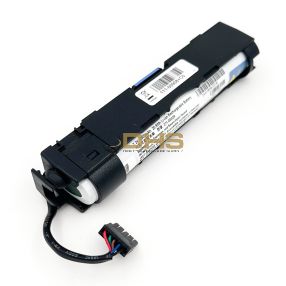-
-
-
-
- SSD
- HDD
- MEMORY
- SWITCH
- WIRELESS
- RACK SERVER
- BACKPLANE
- BATTERY
- BEZELS
- BLADE SERVER
- BLANK
- CABLE
- CADDY
- CONTROLLER
- CPU
- DVD/CD
- EXPANSION
- FAN
- FIREWALL
- GPU
- HBA
- HEAT SINK
- KVM SWITCH
- LIBRARY
- LICENSE
- NETWORK ADAPTER
- NETWORK MODULE
- PDU
- PSU
- RACK MOUNT KIT
- RAID CONTROLLER
- RISER CARD
- ROUTER
- SAN SWITCH
- SCREEN
- SOFTWARE
- SYSTEM
- SYSTEM BOARD
- TAPE
- TOWER SERVER
- TRANSCEIVER
- SERVICE
- PCI CARD
-
-
-
- HDD
- SSD
- MEMORY
- NETWORK ADAPTER
- PSU
- BACKPLANE
- BATTERY
- BEZELS
- BLADE SERVER
- BLANK
- CABLE
- CADDY
- CONTROLLER
- CPU
- DVD/CD
- EXPANSION
- FAN
- GPU
- HBA
- HEAT SINK
- KVM SWITCH
- LIBRARY
- LICENSE
- MOUSE
- NETWORK MODULE
- PDU
- RACK CABINET
- RACK MOUNT KIT
- RACK SERVER
- RAID CONTROLLER
- RISER CARD
- SERVICE
- SOFTWARE
- STACK MODULE
- SWITCH
- SYSTEM
- SYSTEM BOARD
- TAPE
- TOWER SERVER
- TRANSCEIVER
-
-
-
- HDD
- SSD
- MEMORY
- NETWORK ADAPTER
- PSU
- BACKPLANE
- BATTERY
- BEZELS
- BLADE SERVER
- BLANK
- CABLE
- CADDY
- CONTROLLER
- CPU
- DVD/CD
- EXPANSION
- FAN
- GPU
- HBA
- HEAT SINK
- KVM SWITCH
- LIBRARY
- LICENSE
- NETWORK MODULE
- PDU
- RACK CABINET
- RACK MOUNT KIT
- RACK SERVER
- RAID CONTROLLER
- RISER CARD
- SAN SWITCH
- SCREEN
- SOFTWARE
- SWITCH
- SYSTEM
- SYSTEM BOARD
- TAPE
- TRANSCEIVER
- SERVICE
-
-
-
-
-
-
-
-
-
-
-
-
-
-
-
-
Checkout using your account
This form is protected by reCAPTCHA - the Google Privacy Policy and Terms of Service apply.
Checkout as a new customer
Creating an account has many benefits:
- See order and shipping status
- Track order history
- Check out faster
NetApp Batteries



Can’t find what you are looking for?
Essential Power Protection for Enterprise Storage
NetApp battery modules are a critical part of any high-availability storage environment. Designed to safeguard data during unexpected power interruptions, these components ensure that temporarily stored information is safely retained until it can be committed to non-volatile storage. For enterprise systems that rely on high-speed caching for optimal performance, a reliable battery backup solution is fundamental to maintaining data integrity and continuous operation.
These batteries support storage controllers by powering volatile memory during outages, giving the system time to complete write operations and avoid data loss. Whether deployed in small-scale environments or large enterprise infrastructures, battery modules serve as a silent but essential line of defense against system instability and downtime.
Supporting System Reliability Through Backup Power
In a typical NetApp storage system, batteries work in conjunction with memory to support advanced caching mechanisms. Cached data significantly enhances performance by accelerating write operations, but it also introduces risk if not properly protected during a loss of power. Battery-backed memory ensures that this cached data is retained long enough to be safely stored, even during prolonged outages or during controlled shutdowns for maintenance.
By offering several hours – or even days – of backup power to volatile memory components, these batteries provide IT teams with the confidence that mission-critical data remains intact regardless of external power conditions. This added layer of security is particularly important in environments where even brief periods of data unavailability can result in significant operational disruption.
Key Considerations for Compatibility and Maintenance
Choosing the right battery for your NetApp environment involves understanding system compatibility, capacity needs, and maintenance cycles. Batteries must match the electrical and physical specifications of the storage controller and be properly housed in compatible holders to ensure safe installation and stable operation.
Regular maintenance is also vital. Most enterprise environments follow a proactive replacement schedule – typically every two to three years – to avoid degradation that could impact performance or trigger system alerts. Many NetApp systems include health monitoring features that detect battery wear or failure conditions in advance, allowing administrators to take corrective action before problems occur.
Enhancing Uptime with Preventive Planning
Early identification of battery issues is essential to maintaining system uptime. Common warning signs include degraded battery health reports, system alerts, and reduced backup hold time. Addressing these signs through timely replacement helps prevent unnecessary downtime and protects ongoing data operations.
For organizations managing large or distributed infrastructure, keeping a supply of spare batteries on hand ensures swift replacement when needed. This readiness contributes to overall storage resilience and supports stringent uptime requirements in enterprise deployments.
Value-Focused Options and Long-Term Reliability
In addition to new components, many organizations utilize professionally refurbished NetApp batteries as a cost-effective way to extend the lifecycle of existing hardware. These batteries, when properly tested and certified, offer reliable performance and provide budget-conscious IT teams with a dependable power solution.
Explore other essential components that help maintain your NetApp systems, such as NetApp PSU units and NetApp Controller modules. For a complete view of available solutions, visit our NetApp category and discover enterprise-grade hardware tailored to your data management needs.
- Price:
- Actual Price:


